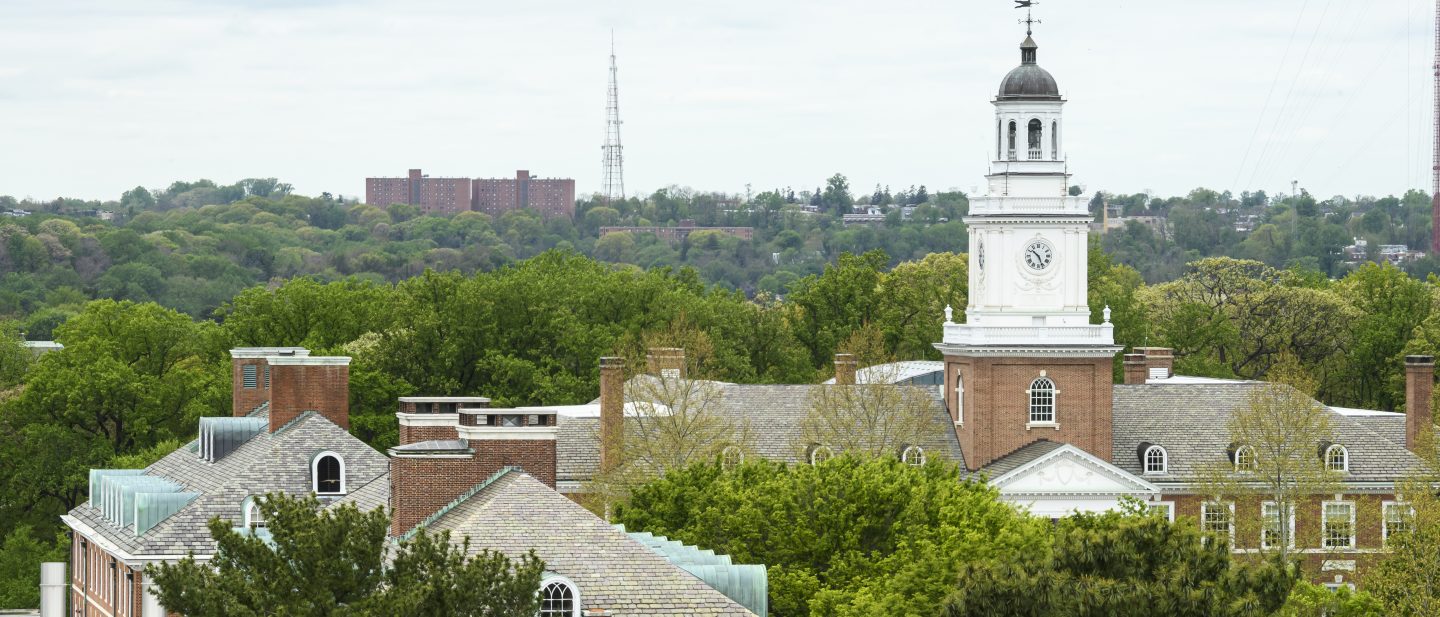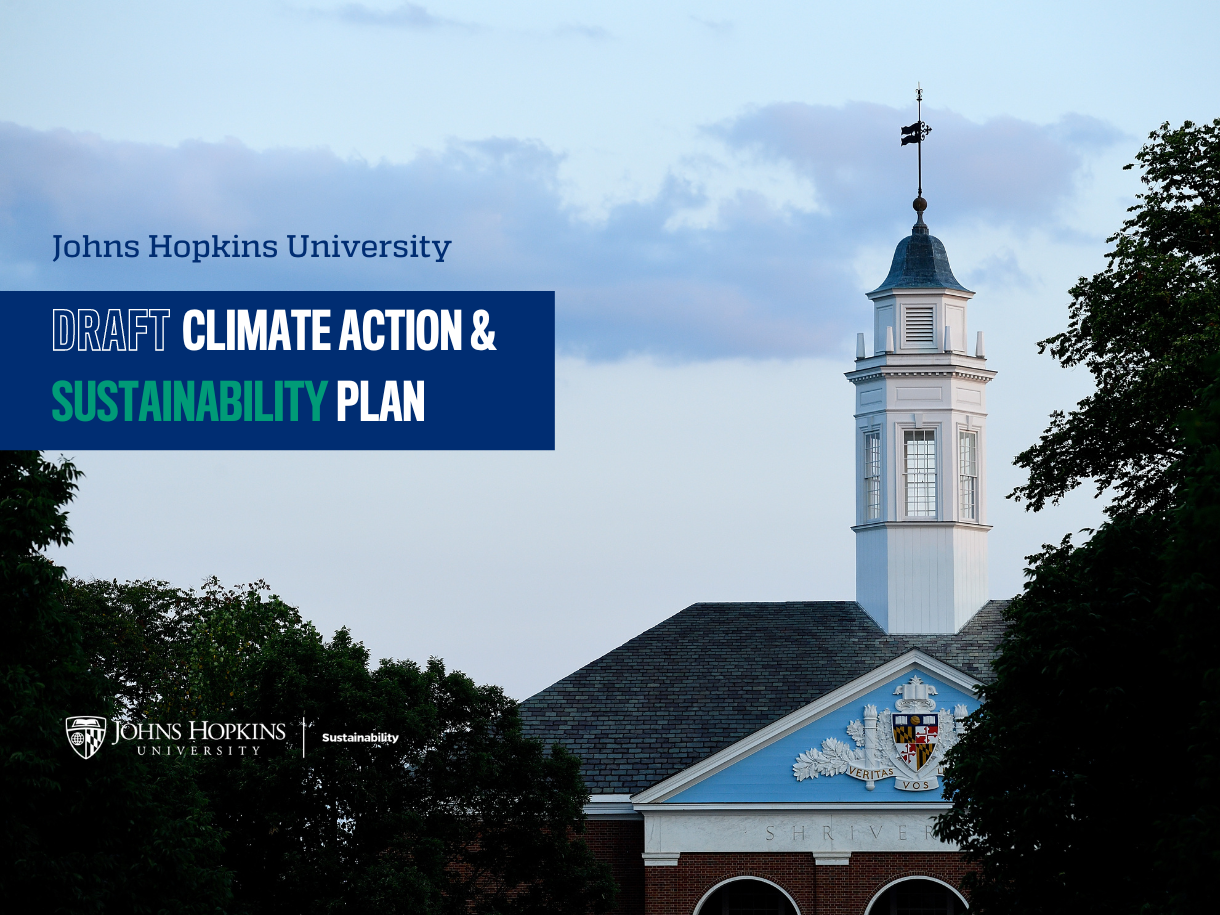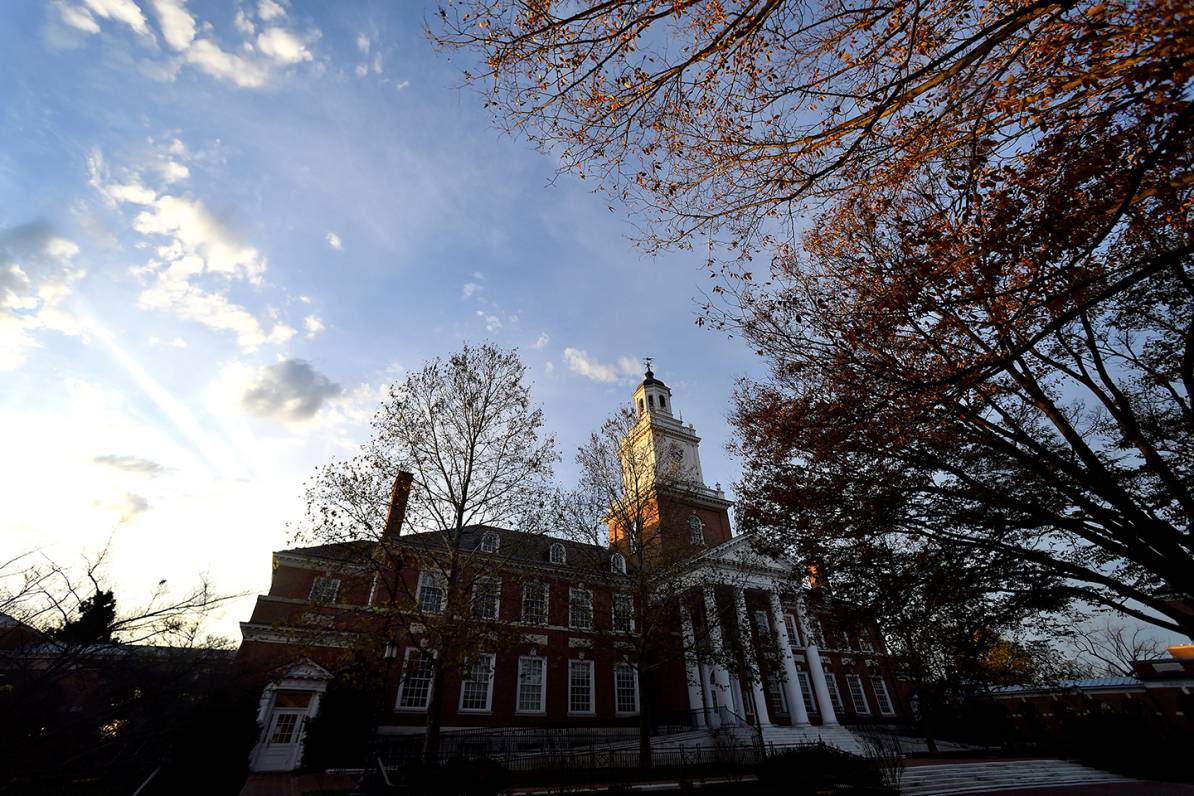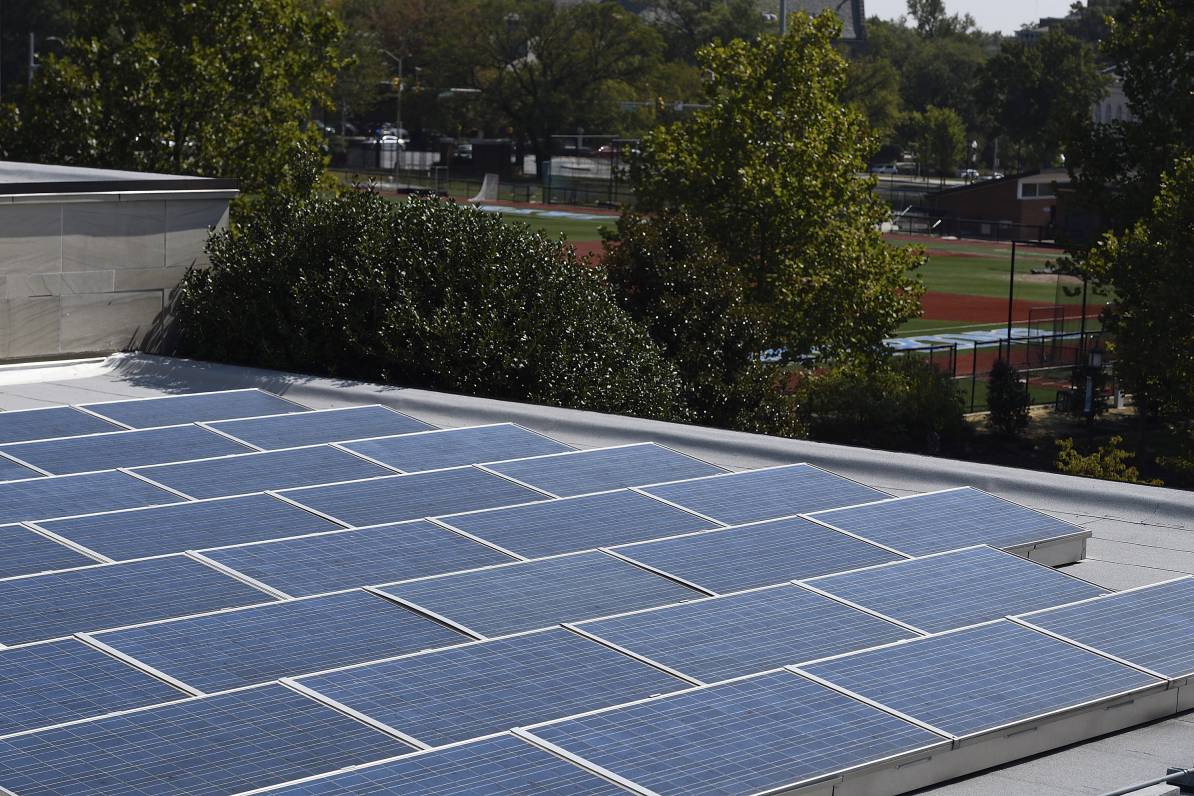
Forging a Sustainable Future
Building off of the 2009 JHU Climate Change Implementation Plan, a new university-wide Climate Action and Sustainability Plan will leverage the university’s unique multidisciplinary expertise to create an ambitious and holistic vision for a healthy, just, and sustainable future.
The Plan outlines a series of short- and long-term strategic goals, objectives, and actions in areas including Research, Teaching, & Scholarship; Climate Action; Built & Natural Environments; Responsible Consumption; and Mobility & Transportation.

JHU Draft Climate Action & Sustainability Plan
Read the Draft Climate Action & Sustainability Plan at the link below. Following the Fall 2023 open comment period—resulting over 600 comments from faculty, students, staff, and community members across the university—the Draft Plan is being refined and prepared for final release in Spring 2024.
Town Hall Recordings
Hear remarks from leadership and an overview of the Climate Action & Sustainability Plan's process, vision, and goals from the recent Town Halls, which took place at the Bloomberg School of Public Health on October 4th and Scott-Bates Commons on October 11th.
FAQ
The Plan’s advisory structure has included a Community Advisory Group comprised of Baltimore representatives that have worked to ensure the Plan responds not only to issues on JHU’s campuses, but to those relevant throughout Baltimore. Environmental Justice is a guiding principle of the Plan’s vision and has been reflected in both the stakeholder engagement process and resulting priorities across all five sections.
The current draft Plan was developed through extensive campus and community stakeholder collaboration over the past year and a half. This includes: a university-wide survey to inform the Plan’s vision and principles; a series of eleven public workshops to generate ideas and recommendations; and advisement from four technical working groups, three advisory groups, a steering committee, and countless others in drafting and refining the Plan’s content. These groups have reflected a diverse cross-section of faculty, student, staff, and community members whose perspectives have helped shape and enrich the entire process and ensured the Plan’s priorities reflect the perspectives of our campuses, the region, and the global audiences of the university. In all, over 1,500 individuals have participated in shaping the current draft Plan.
An overarching goal of the university’s Climate Action and Sustainability Plan is to establish sustainability as a guiding pillar and strategic priority for all JHU’s schools and divisions. While the School of Medicine is within the bounds of the Plan’s purview, JHHS is a separate entity and is developing its own Sustainability Plan for the health system. Many JHHS stakeholders have participated in Plan committees and technical working groups and their input and experience will be valuable as the Health System develops its own Sustainability Plan.
The draft Plan is an ambitious and holistic roadmap that includes multiple scopes organized within a single framework to be as time-efficient and integrative as possible. The Plan will catalyze JHU’s action in a cohesive framework to 2030 and beyond that includes both short-term actions that we can implement as soon as possible and longer-term actions which will require more substantial time horizons to implement. Interim goals will be set on the basis of impact and social responsibility to meet science-based approaches to sustainability planning.
As JHU prepares for the adoption of the new Plan, defining roles, responsibilities, and governance is essential to the long-term integration of sustainability as a guiding institutional priority. To date, JHU’s sustainability program has been led by the Office of Sustainability, and while the office will continue to support the achievement and implementation of the Plan’s goals with complementary vision and guidance provided by the Sustainability Leadership Council—establishing sustainability as an institutional pillar will require the full breadth of JHU’s schools and divisions to allocate new resources, designate staff and faculty leaders, and align the Plan’s priorities within their own strategic goals. As such, a framework for sustainability governance and accountability is currently being developed in conjunction with the draft Plan and will be included in the final Plan release.
Specific targets and details for how we will measure progress are being developed in conjunction with the Plan. Progress on the Plan’s goals and objectives will be reported on regularly by the Office of Sustainability and made publicly available on an annual basis. A framework for tracking and reporting on progress will be included in the final Plan.
The final Plan, which will include additional spotlights on signature initiatives and next steps for implementation, is intended to be announced and shared widely with the university community in Spring 2024.


